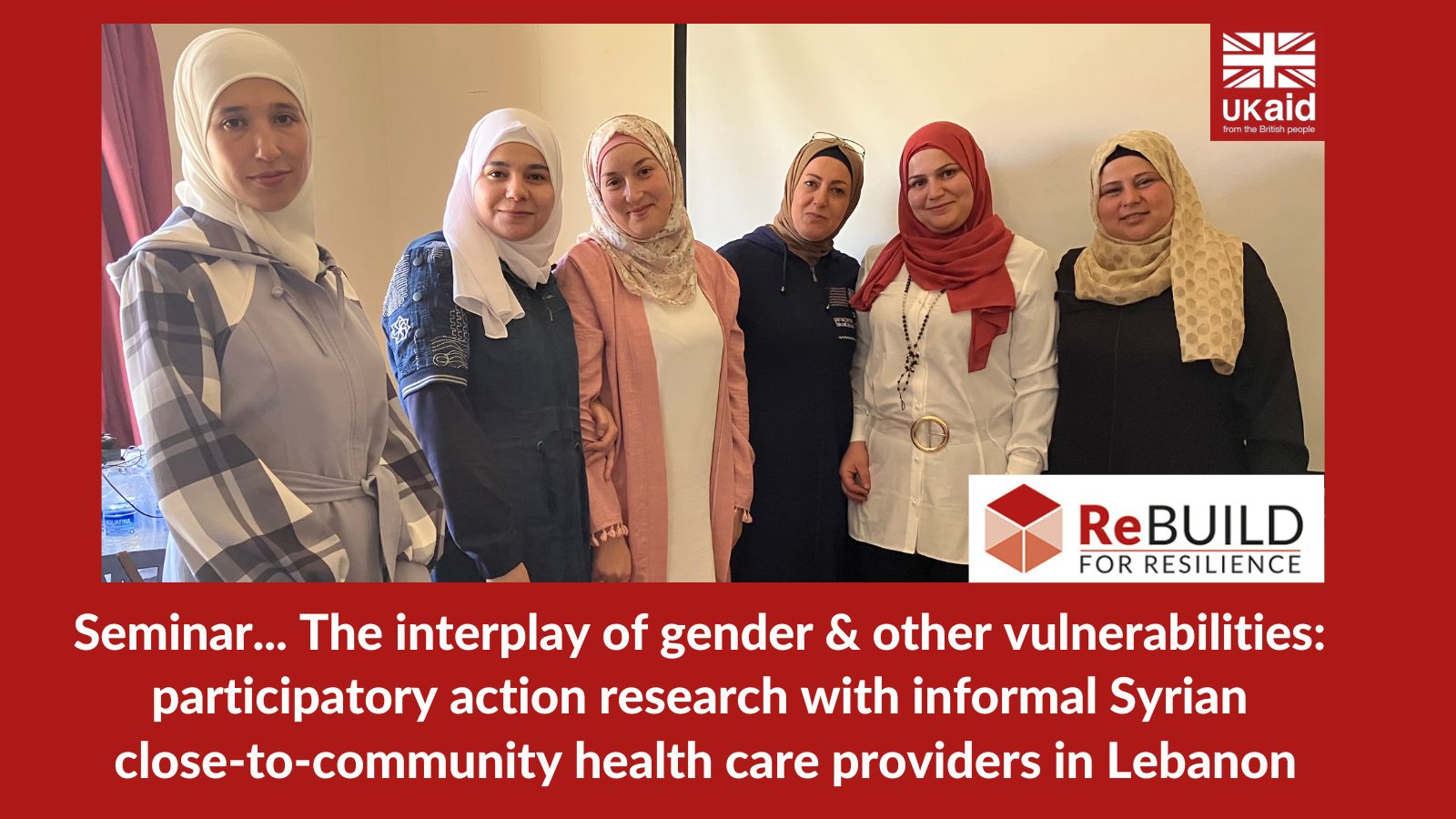
Webinar: The interplay of gender and other vulnerabilities: A participatory action research with informal Syrian close-to-community health care providers in Lebanon
23 January 2024
This webinar has finished. Watch the recording here
Webinar: Wednesday 24th January, 12 noon Lebanon / 10am UTC
The ReBUILD for Resilience Lebanon team at American University of Beirut undertook a qualitative study to delve into the gendered experiences of close-to-community (CTC) healthcare providers during the COVID-19 pandemic (more on the study here). Employing a participatory action research (PAR) approach, the study organized workshops involving 8 female CTC providers, all of whom were Syrian refugees working unofficially in Lebanon.
The initial workshop revealed challenges stemming from both professional responsibilities as CTC providers and their roles as mothers. Surprisingly, the ranked scores indicated that female CTC providers prioritized challenges related to their socio-economic circumstances over those rooted solely in gender disparities. The participants then collectively selected the issue of the “double burden” as the central area for intervention. This led to the conception of a “support group” that aims to drive collective solutions (more on that study here).
In this webinar, hosted by American University of Beirut, ReBUILD’s Fouad Fouad and Rouham Yamout will talk about the interplay of gender and other vulnerabilities in the women’s lives. This hybrid seminar will take place in the Nabil Boustany Auditorium and online through Webex.
Meeting link here [opens new tab]
Meeting number: 2405 378 0491
Password: qZjdx85HE$3 (79539854 from video systems)